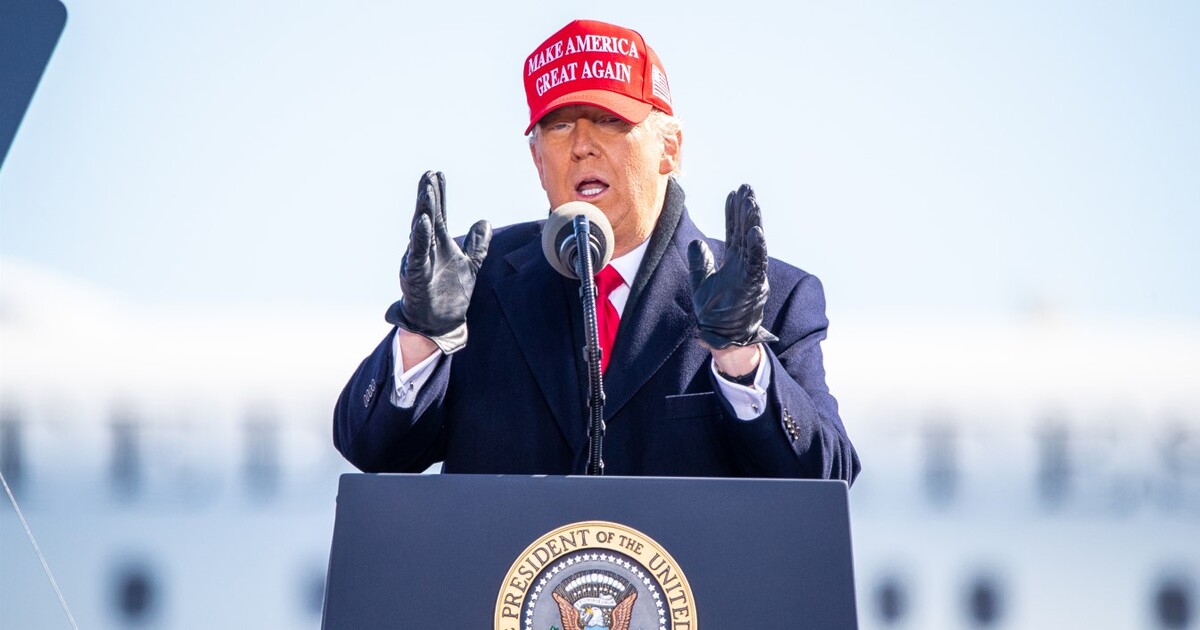How Trump’s Trade Policy Resurrects COMECON, U.S.-Style
What the U.S. president really means by pleading for “fairness” is simply for the U.S. to have its way.
April 1, 2025

A Strategic Assessment Memo (SAM) from the Global Ideas Center
You may quote from this text, provided you mention the name of the author and reference it as a new Strategic Assessment Memo (SAM) published by the Global Ideas Center in Berlin on The Globalist.
In Donald Trump’s world view, the United States is by definition superior to all other nations. In such a world, it is also inconceivable that the U.S. economy would not run a trade surplus basically with all countries.
No wonder then that Mr. Trump truly believes that the trade surplus which the EU has with the United States must simply be a result of “cheating.”
Trump should know otherwise
Trump should know otherwise. As a big-dealing real estate tycoon, he ought to be very familiar with the fact that most markets are driven by an endless series of individual buying and selling decisions.
Moreover, most European firms selling into the United States hardly benefit from a lower cost basis.
You’re fired!
To understand how out of character his performance is, imagine for a moment that Mr. Trump were back in his previous role as host of “The Apprentice” reality TV talk show.
Hearing a contestant on the losing side of a deal complain about a lack of “fairness,” Trump would undoubtedly shout “Stop being such a whiner!,” adding: “You’re a loser, a real loser. I don’t want you on my team. You’re fired!”
And yet, Donald Trump has seized on “fairness” as the most serious issue of U.S. trade policy.
Binary men
To make the world fit their needs and predilections, Mr. Trump and his key trade advisor, Peter Navarro, see the world as an endless series of bilateral relationships.
Both men share a deep conviction that, given the size and the weight of the United States, it is far more advantageous for the U.S. government to deal with all other nations in a one-to-one, effectively hand-to-hand combat fashion.
What also shines unmistakably through the Trump/Navarro worldview is an inability to think in more complex terms — such as engaging in multilateral dealings.
And why not, they say. After all, this is what best allows the United States to throw its weight around. As Trump sees it, it should ensure that his country — in the presumed spirit of ”fairness” — always to end up getting his way, irrespective of the other side’s interests.
Welcome back the COMECON
What do these core features of future U.S. trade policy mean for the rest of the world? The United States under Trump has positioned itself as a kind of schoolyard bully. It is intent on breaking the previous web of multilateralism into many separate bilateralisms.
What is truly astounding about all of this is that there is a global precedent for Trump’s approach to trade. After the Second World War, when the United States led the world in establishing a multilateral trade system, called the GATT back then, the Soviet Union pursued a decidedly different design.
It established the COMECON, the so-called Council for Mutual Economic Assistance. That was a deliberate misnomer.
Striking parallels
At the core of COMECON then, and of Trump’s trade policy now, is a very hierarchically structured international economic system where the economic assets of all the member nations are arranged in cascade style to serve one purpose — to strengthen the interests of the hegemon that sat at the top of the pyramid, the Soviet Union.
Mr. Trump’s and Mr. Navarro’s ultimate vision clearly is to turn the entire world into a resurrected COMECON, this time under the firm leadership of the United States.
Only a short while ago, anybody in the United States arguing that way would have been described as spewing out an irreparably leftist, anti-capitalist claptrap. And yet, here we are.
So much for “fairness.”
Editor’s note: This article by Stephan Richter was originally published on The Globalist on March 12, 2018. It is republished here without any changes.
Takeaways
There is a global precedent for Trump’s approach to trade — the so-called Council for Mutual Economic Assistance (COMECON) established by the Soviet Union after the Second World War.
At the core of COMECON then, and of Trump’s trade policy now, economic assets of all the member nations serve one purpose — to strengthen the interests of the hegemon that sits at the top of the pyramid.
In Trump's world view, the U.S. is by definition superior to all other nations. In such a world, it is inconceivable that the U.S. economy would not run a trade surplus with basically all countries.
Trump's world view is characterized by an inability to think in more complex terms — such as engaging in multilateral dealings.
The U.S. under Trump has positioned itself as a kind of schoolyard bully. It is intent on breaking the previous web of multilateralism into many separate bilateralisms.
Trump’s ultimate vision clearly is to turn the entire world into a resurrected COMECON — this time under the firm leadership of the U.S.
A Strategic Assessment Memo (SAM) from the Global Ideas Center
You may quote from this text, provided you mention the name of the author and reference it as a new Strategic Assessment Memo (SAM) published by the Global Ideas Center in Berlin on The Globalist.


